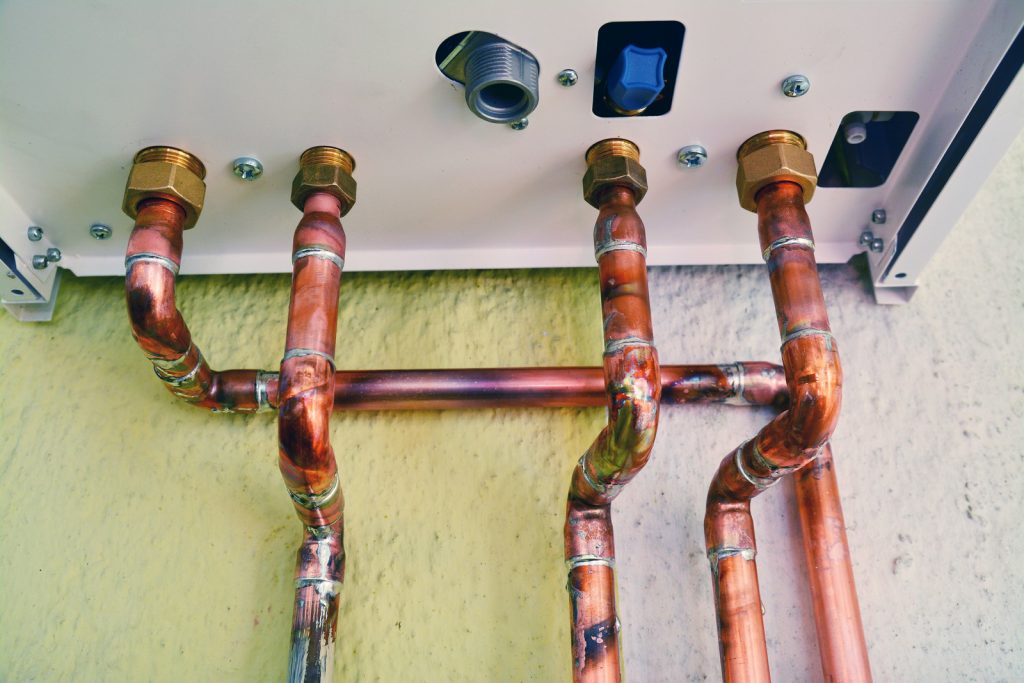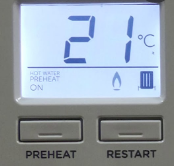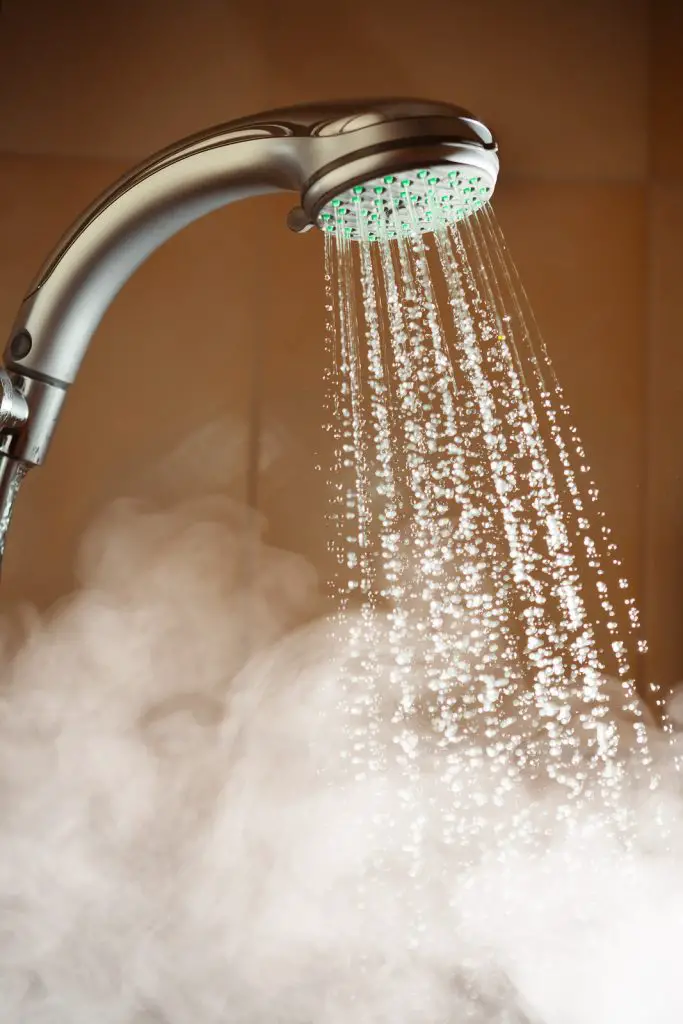When a boiler keeps shutting itself off unexpectedly, it can be incredibly frustrating for homeowners. Nothing is worse on a cold winter morning than having your heating and hot water suddenly stop working. This article will explore the common reasons a boiler may repeatedly turn itself off, how to diagnose the problem, and when to call in a professional for repairs.
Boiler keeps turning on and off causes
A boiler that keeps turning itself off is a common problem and could be due to several reasons, including an oversized boiler, a faulty thermostat, or a faulty water pump. An oversized boiler causes an issue known as ‘short cycling’, that can cause premature wear and tear, reducing its lifespan.
It’s important to get your boiler checked by a professional to identify and fix the underlying issue.

If your boiler is switching on and off frequently, reviewing these boiler not working fixes may help troubleshoot the issue.
Common Reasons a Boiler Keeps Shutting Off
There are a few key culprits that typically cause a boiler to repeatedly shut itself down:
Interruptions to the Fuel Supply
One of the most ignored causes of a boiler turning off itself is interruptions to the fuel supply. If there is no fuel, the boiler cannot function, and it will shut down. Check that your fuel supply is not interrupted.
Faulty Thermostat
A faulty thermostat is one of the most common causes behind a boiler repeatedly shutting down before the home reaches the desired temperature. The thermostat acts as the “brain” of your heating system, constantly monitoring room temperatures and telling the boiler when to turn on or off.
If the thermostat malfunctions and fails to accurately read the ambient room temperature, it will prematurely instruct the boiler to turn off after the set temperature is reached, even if it is still chilly inside. This is incredibly frustrating for homeowners who find their boiler cycling on and off but never actually heating their home to a comfortable level.
Faulty thermostats should be replaced to restore proper boiler function. Modern smart thermostats can also help improve efficiency and comfort.
Safety Mechanisms
A common reason the boiler may switch itself off due to in-built safety mechanisms. If it did not shut down, then the boiler could overheat. If there is air in the system, the boiler may also shut down.
Low Water Pressure
A frequent factor in many boiler shutdowns is low water pressure. Boilers require adequate water pressure to operate safely and efficiently. The standard pressure range is typically between 1-2 bar. If pressure drops too low, it can trigger the boiler’s safety mechanisms to completely shut down the system.
Pressure can drop over time due to small leaks in the system or from bleeding radiators. Low pressure prevents water from properly circulating through the boiler and radiators, leading to shutdowns. Checking the pressure gauge and re-pressurizing the system if needed can often easily resolve this boiler issue.
Low boiler pressure can sometimes cause a boiler to switch on and off frequently
Frozen Condensate Pipe
All boilers produce a liquid waste called condensate, which needs to drain away safely. This condensate is acidic and must be piped away from the boiler through a condensate drainage pipe. However, if this pipe freezes over in wintertime due to extremely cold temperatures, the condensate has nowhere to go.
The frozen condensate will rapidly back up inside the boiler, triggering an automatic shutdown to prevent internal damage. Thawing out the frozen drain pipe and unblocking the condensate flow will allow the boiler to be restarted after this issue arises. Insulating condensate pipes can help prevent freezing.
A boiler that is switching on and off frequently could indicate some boiler breakdown warning signs that should be addressed.
Preheat Function On a Boiler
This is one reason why the combi boiler switches itself on and off and is normal. It helps deliver hot water to the tap quicker when you turn it on.
The preheat function, when turned on, provides you with hot water quickly when turning on the hot tap. The boiler keeps the part of the boiler that heats tap water – the plate heat exchanger, hot so it’s ready to send hot water to the tap when needed. The boiler fires up for short periods to keep this part warm.

We can tell the preheat function is activated when looking at the display flashing independently without a demand. It is useful if the hot taps are turned on frequently but if the house is mostly empty during the working week, it doesn’t need to be on.
This preheat function can be deactivated by the user and doesn’t need an engineer to come and sort. Each appliance has a different way to activate and deactivate this function and either ask the installer or check the user manual for the boiler.
Understanding your boiler controls as explained here may help diagnose and fix a boiler switching on and off repeatedly.
Oversized boiler
It is important to get the right size boiler for your property and the number of occupants. A boiler that’s too powerful heats up too quickly and then shuts off again quickly then turns back on as the room temperature room has not been met. It repeats this cycle frequently instead of heating up and running slowly.
Boiler short cycling
One of the most common causes of a boiler repeatedly shutting off and on is a problem known as short cycling. This occurs when the boiler quickly reaches the target temperature set on the thermostat, shuts off, and then turns back on again shortly after in a continuous cycle. It can happen for a few reasons but the main reason is an oversized boiler.
This rapid on/off cycling puts strain on boiler components and wears them out faster. Short cycling can also use more fuel compared to a correctly sized boiler maintaining an even, steady burn. In addition, the constant heating up and cooling down can lead to noisy operation, less comfortable indoor temperatures, and higher energy bills.
In this case, you may notice your heating bills becoming more expensive as well as it leading to the boiler getting more wear and tear over time, resulting in increased repairs.
Here’s a troubleshooting guide from Worcester Bosch about their boilers cycling on and off.
If you want a professional to look at your boiler, we recommend Hometree home care that can help. Hometree offers customers peace of mind with home care packages for their boiler, central heating, plumbing, drains and home electrics all at an affordable monthly or annual cost. Click here for more information.
Hometree’s aim is to take the stress out of boiler servicing and home maintenance with unlimited call-outs and a 24/7 helpline, as well as a no price-hike promise.
High boiler pressure
If the water pressure is too high on the gauge, there could too much air in the system so the boiler is shutting down for safety reasons. Too much air in the system can reduce the water circulation so the required temperature is never reached, but the water temperature is very hot.
Check the pressure on the gauge isn’t too much above 1 bar, if it is, you will need to bleed a radiator until it comes down to around that level.

Steps to Diagnose the Problem
When your boiler first starts repeatedly shutting down, there are a few initial steps you can take to try diagnosing the cause:
- Check for fault codes – Most modern boilers will display numeric fault codes explaining why it turned off. Refer to your manual to interpret these.
- Inspect water pressure gauge – Locate the pressure gauge on the boiler and ensure the needle is in the normal range (often between 1-2 bar).
- Listen for gurgling sounds – If the condensate pipe is blocked, this may cause gurgling noises when the boiler runs.
Here is a quick table summarizing the common issues and associated symptoms:
| Problem | Symptoms |
|---|---|
| Faulty thermostat | Boiler turns off but rooms are still cold |
| Low water pressure | Pressure gauge under 1 bar |
| Frozen condensate pipe | Gurgling noises from boiler |
Taking these diagnostic steps will help you narrow down the likeliest reason your boiler keeps shutting down.
Solutions Based on the Cause
Once you’ve diagnosed why your boiler keeps shutting off, you can take steps to address the underlying issue:
- For a faulty thermostat, a simple replacement is the solution. Upgrade to a programmable or smart thermostat for better efficiency. Be sure to install it on an interior wall away from drafts or heat sources.
- To fix low water pressure, check all radiators and valves for leaks. Fix any you find, then follow the boiler manual to repressurize the system back to 1-2 bar. This involves adding water until the pressure gauge is in range.
- For a frozen condensate pipe, use a hair dryer or hot water to safely thaw the blockage. Insulate the pipe to prevent future freezing. Pour warm water down drains to clear any remaining ice inside.
Using your combi boiler efficiently can help troubleshoot issues like frequent boiler switching on and off.
When to Call a Professional
While some boiler problems can be DIY repairs, certain issues require a trained Gas Safe engineer for service:
- If there are leaks or issues with gas valves or pipes, call a Gas Safe registered pro immediately. Never attempt gas repairs yourself.
- If water pressure won’t increase after attempts to repressurize the system, there may be a serious leak requiring professional repair.
- For boilers under manufacturer warranty, any repairs should only be done by approved technicians to avoid voiding the warranty.
- If fault codes persist afterresetting the boiler, the underlying problem requires diagnosis by an engineer.
When in doubt, calling a pro can save time, money, and prevent injury or damage. Be sure to use a certified Gas Safe boiler specialist.
Preventative Maintenance
Routine maintenance helps minimize boiler issues:
- Have a Gas Safe engineer perform an annual service check before each heating season. This ensures it operates safely and efficiently all winter.
- Investing in a boiler cover plan provides peace of mind. For a monthly fee, repairs by a certified technician are covered. No surprise repair bills!
- Follow the manufacturer’s suggested maintenance schedule and check tasks you can DIY like inspecting vents, water filters, and leaks.
Proper preventative maintenance extends the life of your boiler, improves safety, and helps avoid costly emergency repairs from unexpected breakdowns.
Summary
The main reasons for a boiler switching on and off frequently are:
- The preheat function.
- Boiler short cycling.
- Faulty thermostat.
- Oversized boiler.
- High boiler pressure.
If you feel it’s time for a new boiler, check out BoilerCentral.com which have a wide range of boilers at a great price including installation and very long warranties: Click here to see why we recommend them.

*The information in this article should be used for general guidance only and not as financial advice. Full details are on the link in the footer to our disclaimer page. Always discuss your requirements with a competent and suitably qualified professional before undertaking any work.
